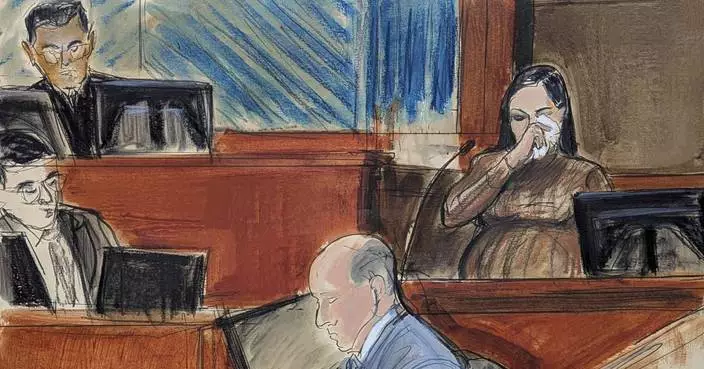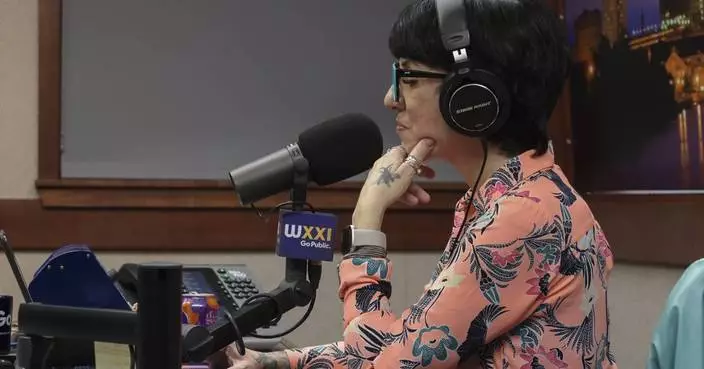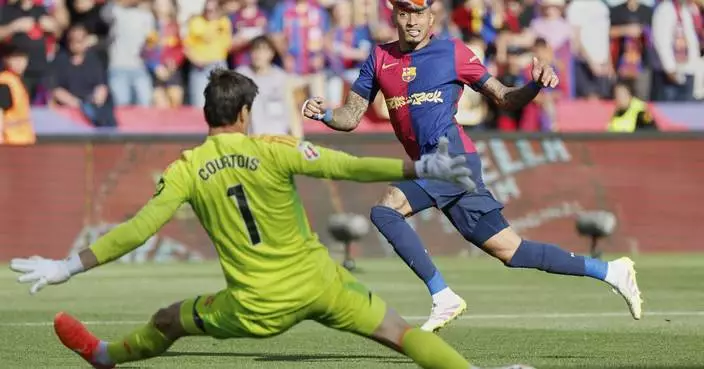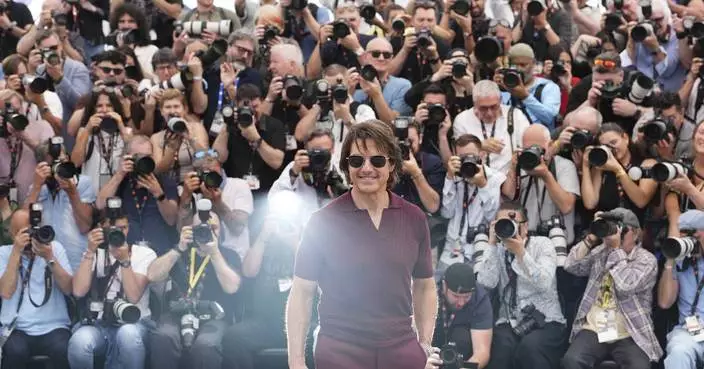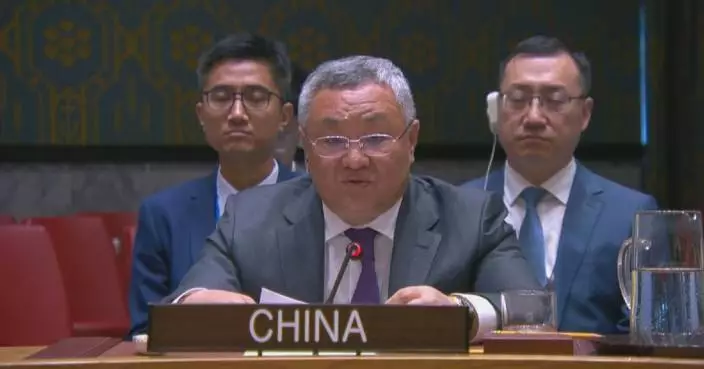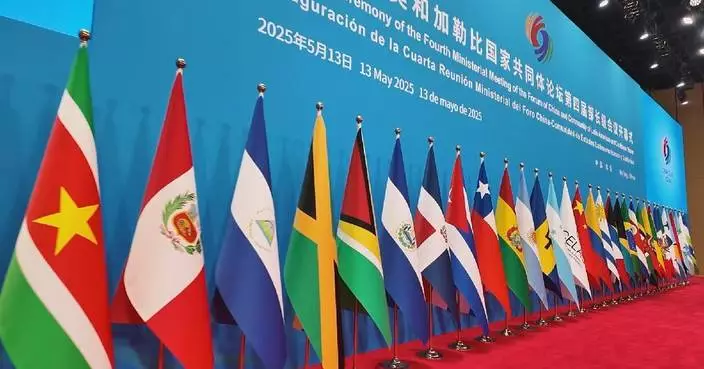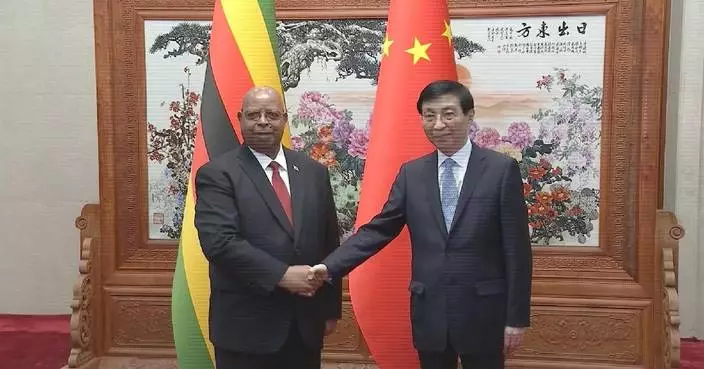NEW YORK (AP) — Mets third baseman Mark Vientos left Saturday’s game against the St. Louis Cardinals because of groin tightness.
Vientos was replaced by Brett Baty in the fifth, one inning after Vientos made a leaping grab to rob Brendan Donovan of a hit.
New York's cleanup hitter, Vientos was 0 for 2, dropping his batting average to .167. He homered in each of the previous two games, his first two homers of the season.
AP MLB: https://apnews.com/hub/mlb

New York Mets' Mark Vientos hits a home run during the sixth inning of a baseball game against the St. Louis Cardinals Friday, April 18, 2025, in New York. (AP Photo/Frank Franklin II)
BRUSSELS (AP) — A top European court ruled on Wednesday that the European Commission was wrong to refuse The New York Times access to text messages sent between President Ursula von der Leyen and a pharmaceutical boss during the COVID-19 pandemic.
The case highlights ongoing questions about transparency at the commission, which insists that text messages and other “ephemeral” electronic communications do not necessarily constitute documents of interest that should be saved or made public.
“Today’s decision is a victory for transparency and accountability in the European Union, and it sends a powerful message that ephemeral communications are not beyond the reach of public scrutiny,” said Nicole Taylor, a spokesperson for the New York Times.
The U.S. newspaper’s lawyers “succeeded in rebutting the presumption of non-existence and of non-possession of the requested documents,” according to a statement from the European Union’s General Court in Luxembourg.
The statement said that “the commission cannot merely state that it does not hold the requested documents but must provide credible explanations enabling the public and the court to understand why those documents cannot be found.”
It said that the commission had failed to explain “in a plausible manner” why the messages did not contain important information.
It also said that the commission “has not sufficiently clarified whether the requested text messages were deleted and, if so, whether the deletion was done deliberately or automatically or whether the President’s mobile phone had been replaced in the meantime.”
The commission said it would study the ruling and decide “on next steps,” which could refer to an appeal before the European Court of Justice, the EU's top court. It is unclear if the text messages in question still exist, and if so who has access to them. Von der Leyen herself was responsible for deciding whether the texts constituted documents of value.
“Transparency has always been of paramount importance for the Commission and President von der Leyen,” the commission said in a statement.
Transparency advocates argue that the EU’s increasingly powerful executive branch should maintain a paper trail of all its dealings and release documents when asked.
“This should serve as a catalyst for the Commission to finally change its restrictive attitude to freedom of information,” said Shari Hinds, a policy officer for Transparency International, an anti-corruption group.
The New York Times said text messages were exchanged between von der Leyen and Pfizer CEO Albert Bourla as COVID-19 ravaged communities from Portugal to Finland and the EU scrambled to buy billions of vaccines.
Von der Leyen was under intense scrutiny, especially after AstraZeneca stumbled to deliver vaccine doses to the 27-nation bloc.
Amid fierce international competition for access to the vaccines, von der Leyen was praised for her leading role during the pandemic. But she also faced sharp criticism for the opacity of the negotiations to quickly gather 2.7 billion euros ($2.95 billion) to place an order for more than a billion doses of vaccines.
At the same time as she was reported to be exchanging messages directly with the Pfizer boss, von der Leyen was publicly praising the company as “ a reliable partner.”
Von der Leyen was appointed to head the commission for a second five-year term last July. Critics say the 66-year-old former German defense minister dislikes having her decisions questioned, and that she centralized power at the commission’s headquarters, where she lives when in Brussels.
During her first term, von der Leyen led not only the EU’s pandemic response but also helped to rapidly wean the bloc off its dependency on Russian energy, after President Vladimir Putin used natural gas as a lever to undermine European support for Ukraine.
“It is simply untrue that the Commission President does not use text messages to conduct political business,” said Daniel Freund, a lead anti-corruption lawmaker and a German Green Party member of European Parliament. ”This ruling is a clear defeat for Ursula von der Leyen and a clear rejection of her practice of concealing or hiding her text messages.”
Païvi Leino-Sandberg, a law professor at the University of Helsinki who has a pending legal challenge before the same court about the Commission’s internal documentation rules, called the news “a huge victory for transparency.”
“The Commission lost so completely (in this ruling) and on every possible ground that overturning this in the ECJ seems extremely unlikely," she said.
Lorne Cook in Brussels contributed to this report.
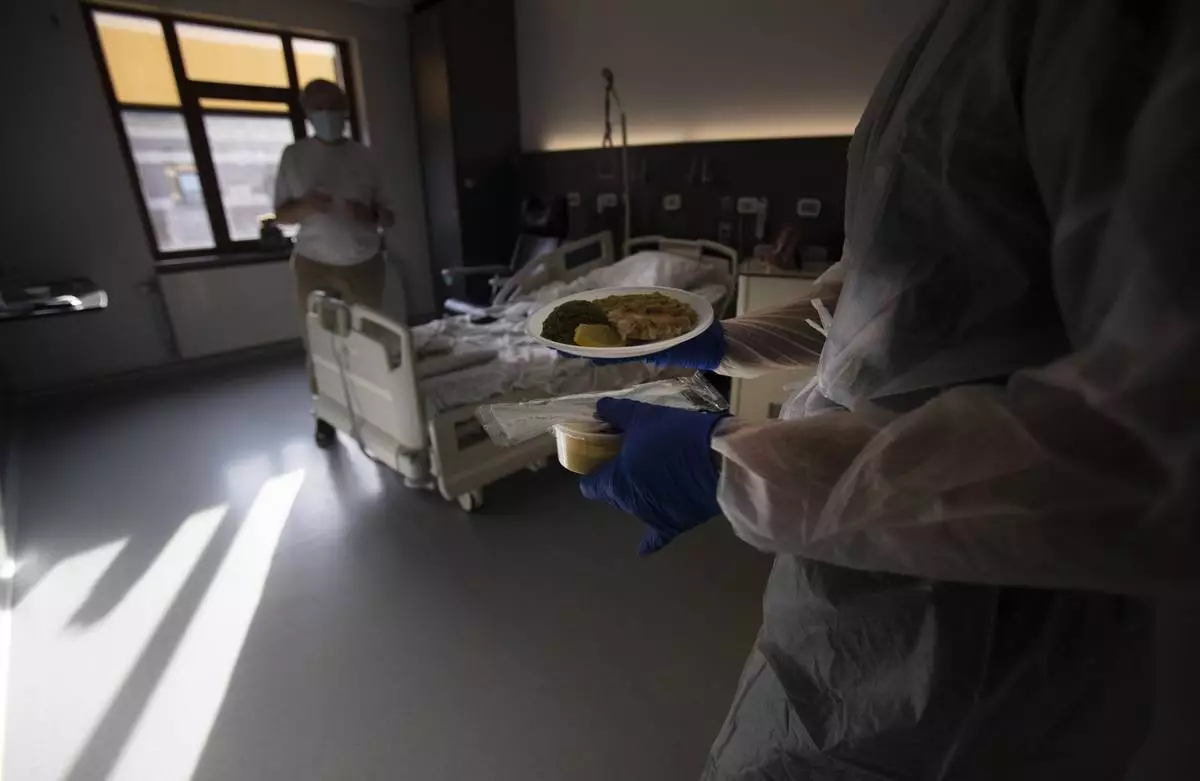
FILE - A Belgian Army medic brings lunch to a patient with COVID-19 at the St. Michiel Hospital in Brussels, Tuesday, Nov. 24, 2020. (AP Photo/Virginia Mayo, File)
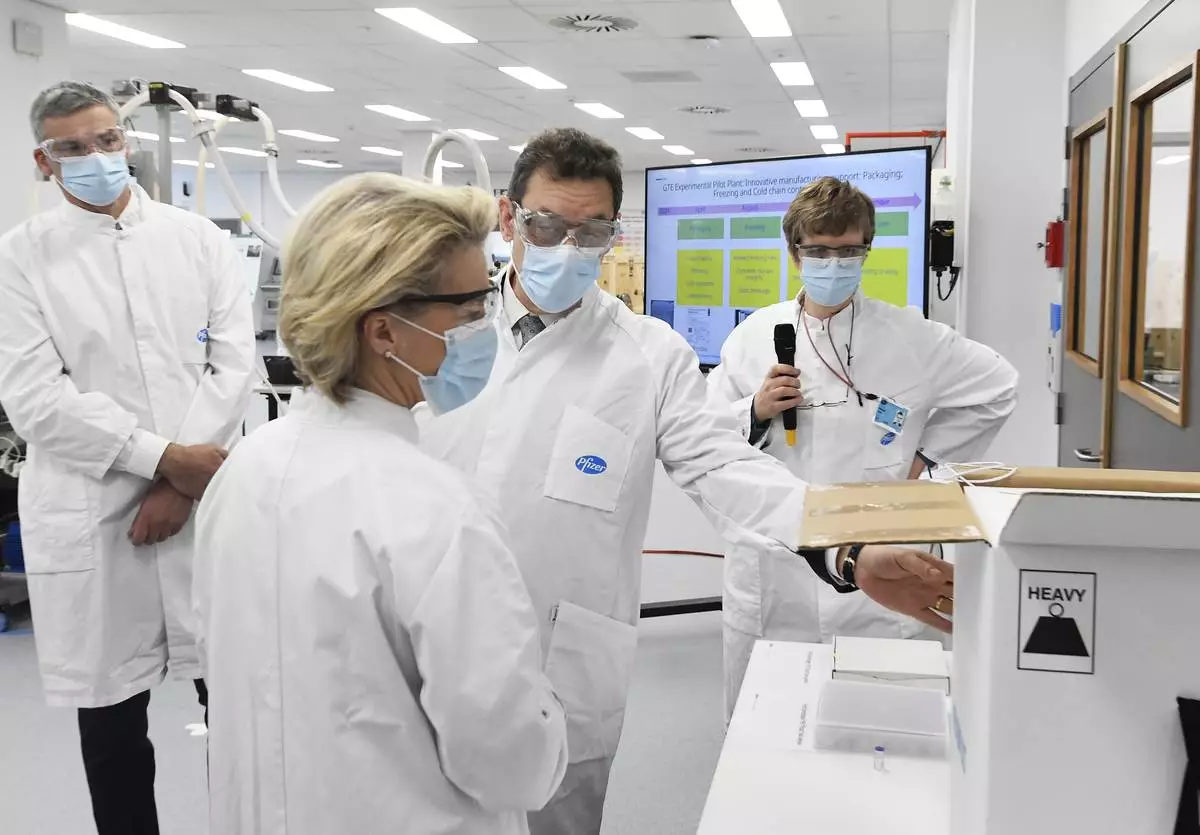
FILE - European Commission President Ursula von der Leyen, second left, speaks with Pfizer CEO Albert Bourla, center right, during an official visit to the Pfizer pharmaceutical company in Puurs, Belgium, Friday, April 23, 2021. (John Thys, Pool via AP, File)
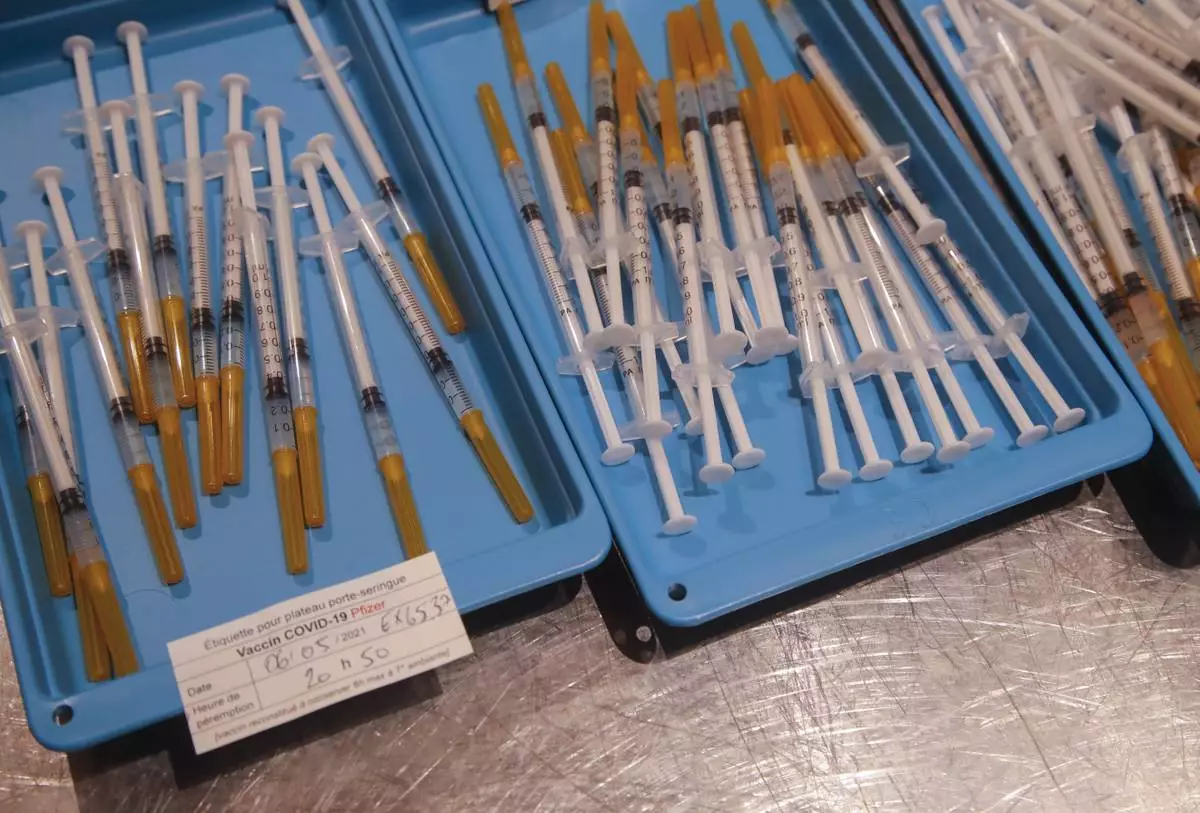
FILE - Syringes with the Pfizer vaccine against COVID-19 disease are ready at a new vaccination center in Paris, Thursday, May 6, 2021. (AP Photo/Michel Euler, File)
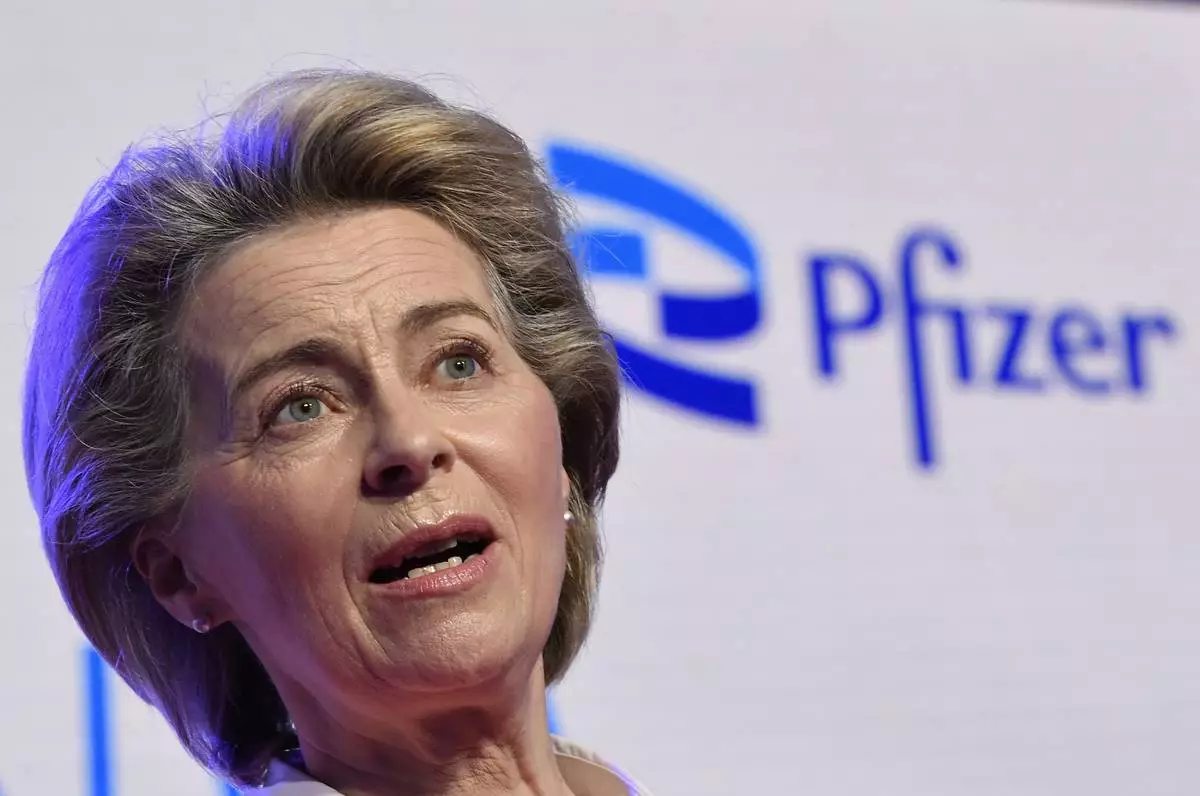
FILE - European Commission President Ursula von der Leyen makes a statement during an official visit to the Pfizer pharmaceutical company in Puurs, Belgium, Friday, April 23, 2021. (John Thys, Pool via AP, File)








